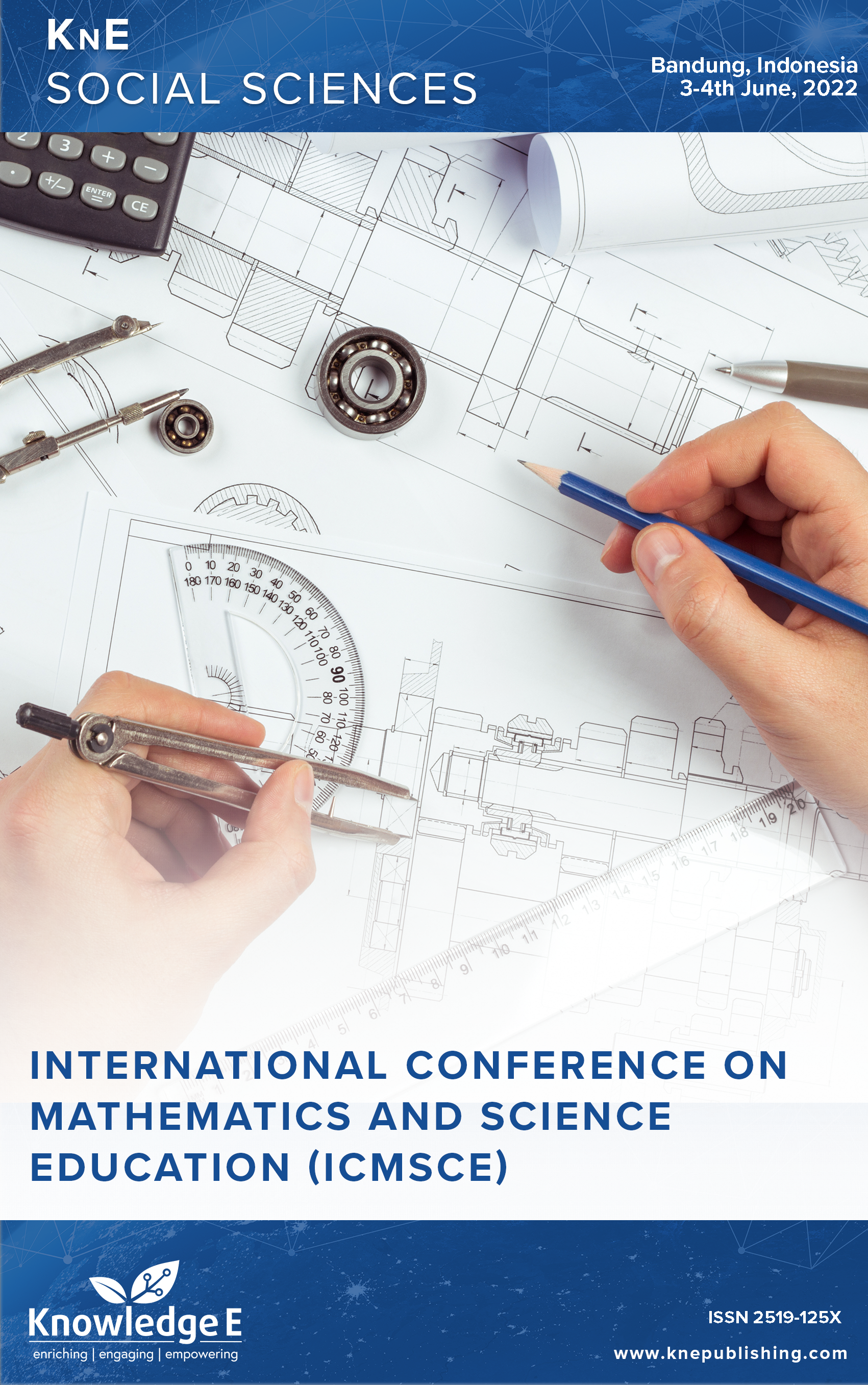Analysis of Student Errors in Solving Mathematical Induction Problems in Online Learning
DOI:
https://doi.org/10.18502/kss.v9i13.15949Abstract
The research aims to analyze student errors in solving math induction-proof problems during online learning in the Covid 19 era. This was a qualitative research with a case study approach. This research was conducted at the Mathematics Education Study Program of UIN Sunan Gunung Djati Bandung in the academic year 2020/2021, and the subjects of this study being students of semester V Class 2018. The instrument in this study was a test, and data analysis were done using qualitiative anlysis. The results showed that the types of errors experienced by students in working on mathematical induction problems are conceptual errors and procedural errors.
Keywords: online learning, solving mathematical induction problems, student errors
References
Hergüner G. S. Buğra SON, S. Hergüner Son, and A. Dönmez, “The effect of online leearning attitudes of university Students on their Online Learning Readiness.” Turk Online J Educ Technol. 2020;19(4):102–11.
Hergüner G, Yaman Ç, Sari SÇ, Yaman MS, Dönmez A. The effect of online learning attitudes of sports sciences students on their learning readiness to learn online in the era of the new coronavirus pandemic (covid-19). Turk Online J Educ Technol. 2021;20(1):68–77.
S.F.G.M.S. T Gonzalez; M A de la Rubia; K P Hincz; M Comas-Lopez; Laia Subirats;, “Influence of covid-19 confinement on students’ performance in higher education,.” PloS one, e0239490. vol. 15(10), p. 2020. DOI: https://doi.org/10.1371/journal.pone.0239490
Hussein MJ, Yusuf J, Deb AS, Fong L, Naidu S. An evaluation of online proctoring tools. Open Praxis. 2020;12(4):509. DOI: https://doi.org/10.5944/openpraxis.12.4.1113
Mahanani N, Priatna N, Jupri A. “Analysis of students algebraic thinking ability viewed by auditory learning style.,” … on Mathematics and …. vol. 4, pp. 95–100, 2019.
NCTM. Principles and Standards for School Mathematics Reston. VA: The National Council of Teacher of Mathematics, Inc; 2000.
D.L. Stylianides, Andreas J.; Ball, “Understanding and describing mathematical knowledge for teaching: knowledge about proof for engaging students in the activity of proving.,” Journal of Mathematics Teacher Education. vol. v11 n4 p30, p. 2008. DOI: https://doi.org/10.1007/s10857-008-9077-9
Uygun-Eryurt T; T. UYGUN-ERYURT. Conception and development of inductive reasoning and mathematical induction in the context of written argumentations. Acta Didactica Napocensia. 2020;13(2):65–79. DOI: https://doi.org/10.24193/adn.13.2.5
Luneta K, Makonye PJ. Analysing grade 12 learner1 errors and the misconceptions in calculus. Acta Didactica Napocensia. 2010;3(3):35–46.
Jou E. “Ematical Inductio on : Dedu ctive log gic persp pective.” vol. 4, no. 3, p. 2016.
Harel G. “The development of mathematical induction as a proof scheme: A model for dnr-based instruction.” Learning and Teaching Number Theory. J Math Behav. 2001;:185–212. DOI: https://doi.org/10.5040/9798216976448.0012

